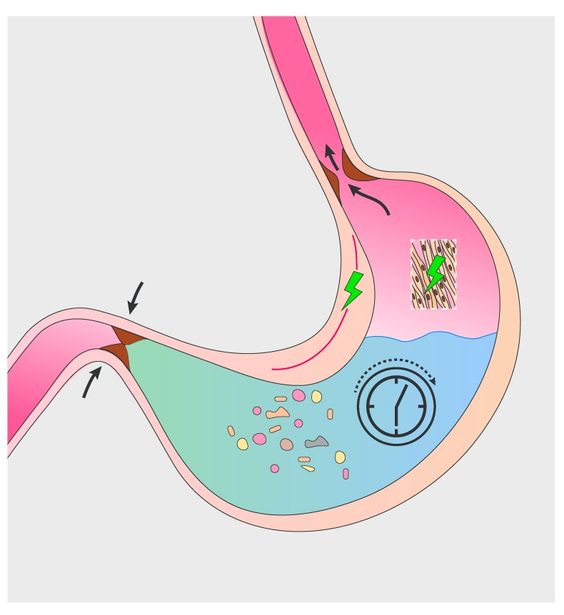Introduction:
Gastroparesis, also known as delayed gastric emptying, is a condition that affects the stomach muscles and prevents proper digestion. In a healthy digestive system, strong muscular contractions move food from the stomach to the small intestine. However, in individuals with gastroparesis, these contractions are weakened or absent, resulting in food remaining in the stomach for longer than usual.

This digestive disorder can lead to a range of uncomfortable symptoms, impacting a person's quality of life. While there's no cure for gastroparesis, various treatment options can help manage the symptoms and improve a patient's well-being. Understanding the causes, symptoms, and treatment approaches for gastroparesis is essential for effective management of this condition.
Symptoms of Gastroparesis:
Gastroparesis can manifest itself through various symptoms, which may vary in severity from person to person. Common signs of gastroparesis include: * Nausea and vomiting * Feeling full quickly after starting a meal * Abdominal bloating * Abdominal pain or discomfort * Heartburn or acid reflux * Unexplained weight loss * Fluctuations in blood sugar levels
Causes of Gastroparesis:
The exact cause of gastroparesis is not always clear, but several factors can contribute to its development. Some common causes include: * Diabetes: High blood sugar levels can damage the vagus nerve, which controls stomach muscles. * Autoimmune diseases: Conditions like scleroderma and lupus can affect the digestive system. * Nervous system disorders: Parkinson's disease and multiple sclerosis can disrupt stomach muscle function. * Medications: Certain medications, such as narcotics and antidepressants, can slow down gastric emptying. * Surgery: Previous stomach or esophageal surgery can sometimes lead to gastroparesis. * Idiopathic: In some cases, the cause of gastroparesis remains unknown.
Diagnosis & Treatment:
Diagnosing gastroparesis involves a comprehensive evaluation of the patient's medical history, physical examination, and specific tests. Some diagnostic procedures include: * Gastric emptying study: This test measures the rate at which food empties from the stomach. * Endoscopy: This procedure allows the doctor to visually examine the lining of the stomach and small intestine. * Biopsy: In some cases, a small tissue sample may be taken for microscopic examination.
Treatment for gastroparesis focuses on managing symptoms and addressing the underlying cause. Treatment options may include: * Dietary modifications: Eating smaller, more frequent meals and avoiding high-fat foods can help improve digestion. * Medications: Antiemetics can reduce nausea and vomiting, while prokinetics help accelerate gastric emptying. * Electrical stimulation: In severe cases, a gastric pacemaker can be implanted to stimulate stomach muscles.
Gastroparesis can significantly impact a person's life, but with proper diagnosis and individualized treatment, symptom management and improved quality of life are achievable. Consulting a healthcare professional is crucial for anyone experiencing persistent digestive issues that might indicate gastroparesis.

.jpg)